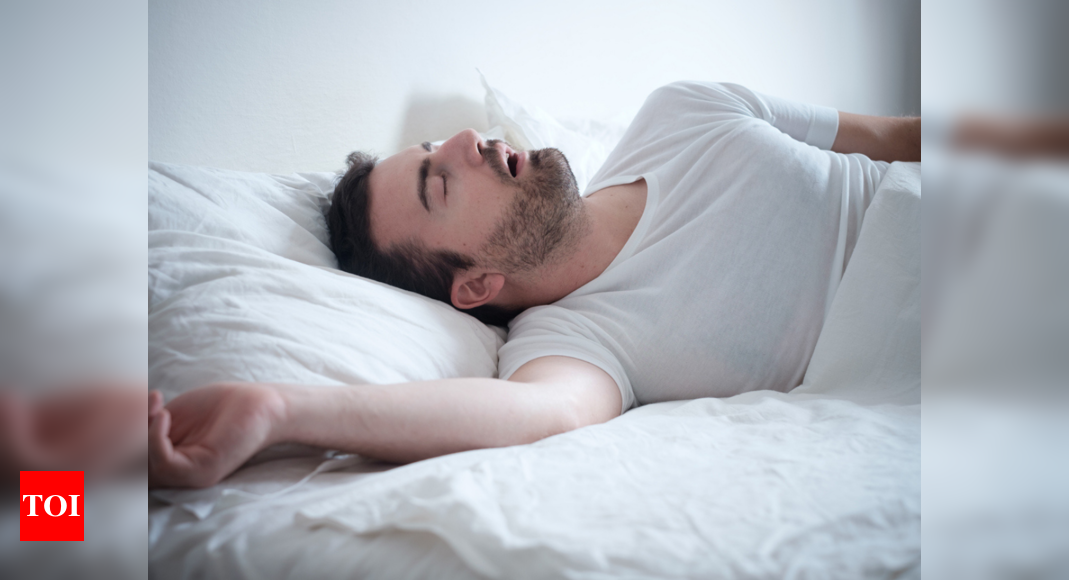Sleep apnea: Know what is the underlying cause, comorbidities that can exacerbate it – Times of India
A person suffering from sleep apnea is unable to get deep sleep as the frequency of the disturbance can go up to 30 times in a night.
One of the big symptoms of sleep apnea is snoring and feeling tired even after a full night’s sleep.
So what exactly happens in this condition? The soft tissue of the mouth and throat give support to the soft palate, the triangular piece of tissue hanging from the soft palate called uvula, the tonsils, and the side walls of the throat and the tongue. Sometimes these throat muscles relax, restricting the airway and limiting the flow of oxygen to the body.
Also Read: Why is obstructive sleep apnea concerning? Does it increase your risk of chronic illnesses?
As soon as the brain gets the signal that oxygen level has lowered in the blood, it signals the body to wake up for breathing.
There are three kinds of sleep apnea: obstructive sleep apnea which is the most common one, the central sleep apnea which has less occurrence and the complex sleep apnea in which the patient gets both the first type of sleep apnea at a time.
Experts have linked the occurrence of sleep apnea with the longevity of a human being. Sleep apnea triggers chronic illnesses like diabetes and hypertension and studies have shown that it decreases the longevity of the person by several years.
Also Read: Workouts to avoid if you have hypertension and what to do
“The people are very tired in the morning, can have high BP, severe acidity and in very advanced cases they can have seizures or they can fall asleep while doing normal activities like driving. So it is a very high risk disease, many times if people get admitted with obstructive sleep apnea, it complicates with pneumonia and other medical conditions as well,” Dr. Aviral Roy Consultant- Intensivist, Medica Superspecialty Hospital told ETimes.
As per reports, men are more likely to have sleep apnea than women. However, women increase their risk if they get overweight. Sometimes the risk of sleep apnea in women increases after menopause.
Family history of sleep apnea can also make a person prone to the condition just like over consumption of alcohol and smoking would make the individual susceptible to it.
Experts at Mayo Clinic say, “Congestive heart failure, high blood pressure, type 2 diabetes and Parkinson’s disease are some of the conditions that may increase the risk of obstructive sleep apnea. Polycystic ovary syndrome, hormonal disorders, prior stroke and chronic lung diseases such as asthma also can increase risk.”
“Whenever we want to improve something, we need to reverse engineer the cause! Managing Nutrition, Hydration, regular exercise, and stress management should be the primary plan of action when dealing with obesity-related sleep apnea,” Fitness coach, Yash Vardhan Swami told ETimes.
For all the latest lifestyle News Click Here

